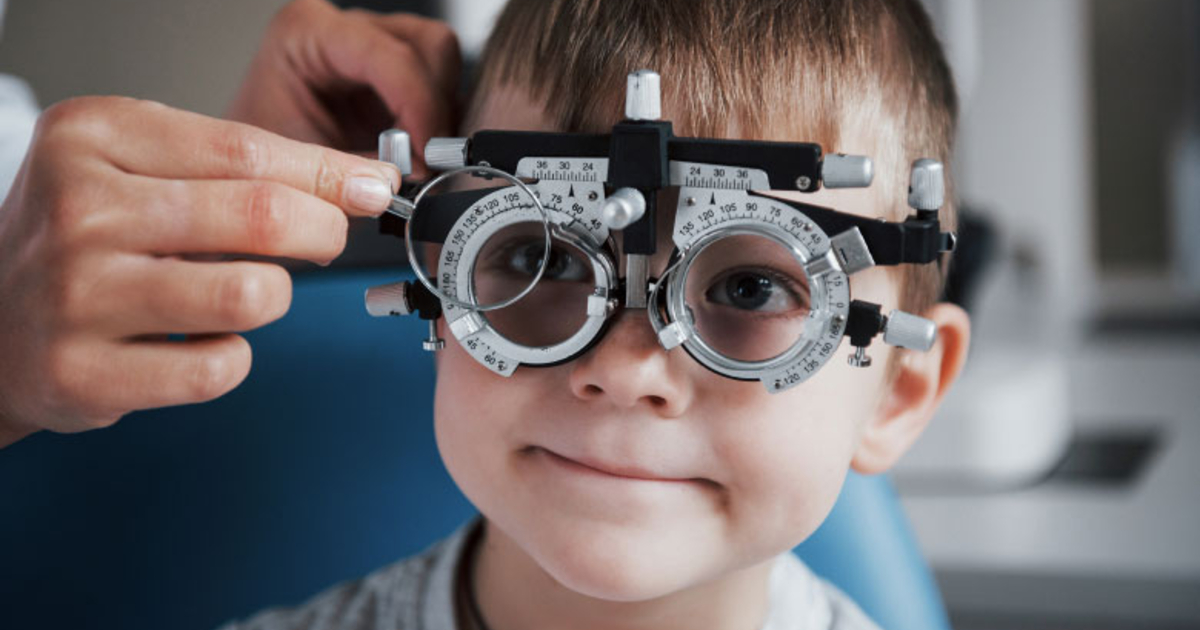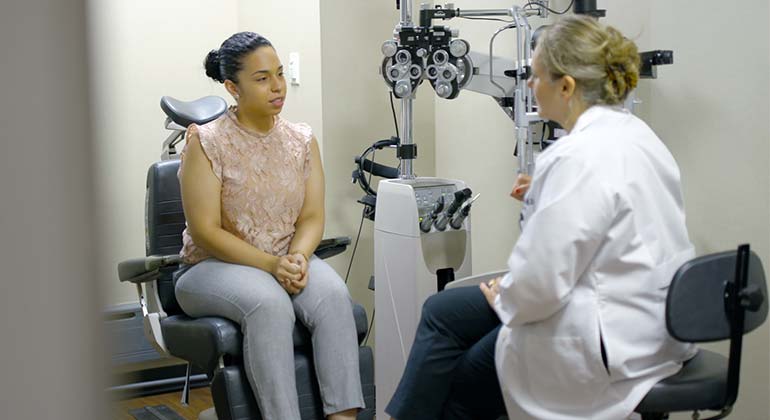Optometrist Montgomery: Quality Eye Care and Vision Solutions
Optometrist Montgomery: Quality Eye Care and Vision Solutions
Blog Article
The Significance of Regular Eye Examinations: Insights From an Experienced Ophthalmologist
Regular eye exams function as a crucial component of medical care that extends past mere vision modification. A skilled optometrist can offer insights into exactly how these examinations not just identify usual eye conditions however also reveal underlying wellness problems that may otherwise go unnoticed. The quiet progression of diseases such as glaucoma and macular deterioration underscores the necessity of very early discovery. Understanding the regularity and significance of these assessments can inevitably influence one's long-lasting health and wellness trajectory, raising the question of exactly how usually people need to prioritize their eye health and wellness in the context of overall wellness.
Advantages of Regular Eye Exams
Although many individuals may neglect the relevance of regular eye examinations, these analyses play an important function in keeping total health and health. Normal eye exams serve not only to analyze vision but likewise to detect early signs of systemic health and wellness concerns, consisting of diabetes mellitus and hypertension. By recognizing these problems at their inception, people can get prompt treatments, dramatically improving lasting outcomes.
Furthermore, eye tests can assist in checking existing health concerns, guaranteeing that any type of modifications in vision or eye wellness are without delay dealt with (optometrist). The analyses permit individualized recommendations regarding glasses, lifestyle changes, and safety actions versus possible eye strain or damage
Beyond physical health and wellness, the advantages of routine eye examinations extend to enhancing quality of life. Eventually, prioritizing eye tests promotes a positive approach to health administration, empowering individuals to take charge of their well-being.
Common Eye Issues Detected
Normal eye examinations contribute in finding a variety of common eye problems that can dramatically affect vision and general wellness. Amongst the most common conditions determined throughout these examinations are refractive errors, consisting of nearsightedness (nearsightedness), hyperopia (farsightedness), and astigmatism. These conditions often show up as blurred vision and can be easily remedied with prescription glasses or call lenses.
In addition, cataracts, which create clouding of the lens, are frequently diagnosed in older grownups. This condition can result in lessened vision and calls for medical treatment for resolution. Another typical concern is glaucoma, a team of eye conditions that harm the optic nerve, typically connected to boosted intraocular pressure. Early discovery is vital as it can avoid permanent vision loss.
Age-related macular degeneration (AMD) is another substantial condition that affects main vision, specifically in individuals over 50. Ultimately, diabetic retinopathy, a difficulty of diabetes, can lead to extreme vision problems otherwise kept an eye on consistently. With comprehensive eye tests, these problems can be determined early, permitting for prompt administration and therapy to preserve vision and enhance lifestyle.
Importance of Very Early Discovery
Very early detection of eye problems plays a crucial role in maintaining vision and stopping substantial health and wellness difficulties. Numerous eye conditions, such as glaucoma, diabetic person retinopathy, and age-related macular degeneration, can advance quietly without obvious signs in their onset. By the time signs manifest, permanent damage may find have happened, leading to irreversible vision loss.
Routine eye exams facilitate very early diagnosis, enabling timely treatment and therapy. For instance, treating elevated intraocular pressure can avoid the onset of glaucoma, while taking care of blood glucose levels can substantially minimize the threat of diabetic retinopathy. In addition, problems like cataracts can be effectively taken care of with medical treatment when recognized early.

Exactly How Usually Should You Go To?
Establishing the frequency of eye examinations is essential for preserving optimum eye wellness and vision. The general suggestion for adults is to have a comprehensive eye examination every one to 2 years, depending on private danger elements and age.
Individuals with certain danger aspects, such as a family history of eye disease, diabetic issues, or existing vision troubles, may require even more frequent examinations. Youngsters ought to have their very first eye test at 6 months of age, complied with by additional exams at age three and prior to going into college. Regular examinations during childhood are crucial as vision can alter quickly during developmental years.
Inevitably, the regularity of visits must be tailored to each person's circumstances, consisting of way of living, job-related hazards, and any kind of pre-existing eye conditions. Consulting with an eye treatment expert can offer customized suggestions, making certain that your eye health and wellness is on a regular basis kept an eye on and preserved.
Tips for Your Eye Examination
Planning for your eye examination can boost the efficiency of the visit and ensure a thorough evaluation of your eye health and wellness. To maximize your time with the eye physician, it is crucial to gather appropriate details prior to like this your consultation. Beginning by putting together a checklist of any kind of drugs you are currently taking, including over the counter medicines and supplements, as these can affect eye health and wellness.
Furthermore, document any kind of symptoms you have experienced, such as blurred vision, discomfort, or frustrations. This details will certainly aid your ophthalmologist in detecting possible issues. If you use glasses or contact lenses, bring them along, even if you do not wear them consistently. This will help the physician evaluate any type of modifications in your vision.
It is additionally advantageous to have a family members background of eye problems handy, as hereditary variables can add to your eye health and wellness. Lastly, think about arranging your test for a time when you are much less hurried, permitting you to ask concerns and discuss your worries extensively. By preparing adequately, you ensure that your eye exam is efficient which your eye physician has all the needed details to supply the most effective care feasible.

Final Thought
Routine Read Full Article eye exams play a critical duty in keeping both vision and overall health. They facilitate the very early discovery of different eye problems and systemic problems, allowing for prompt intervention. The recommendations for frequency highlight the relevance of aggressive treatment. Applying simple preparatory ideas can boost the evaluation experience. Ultimately, prioritizing detailed eye examinations contributes substantially to the conservation of vision and the improvement of high quality of life, underscoring the need of routine eye care in precautionary health care strategies.
Normal eye examinations are instrumental in identifying a range of usual eye problems that can substantially influence vision and total health and wellness.Figuring out the frequency of eye exams is important for maintaining ideal eye wellness and vision.Preparing for your eye exam can improve the efficiency of the check out and guarantee a detailed assessment of your eye health and wellness (optometrist). By preparing properly, you ensure that your eye test is productive and that your eye doctor has all the necessary details to supply the ideal treatment possible
Eventually, focusing on detailed eye evaluations contributes dramatically to the conservation of vision and the improvement of high quality of life, highlighting the need of regular eye treatment in precautionary medical care strategies.
Report this page